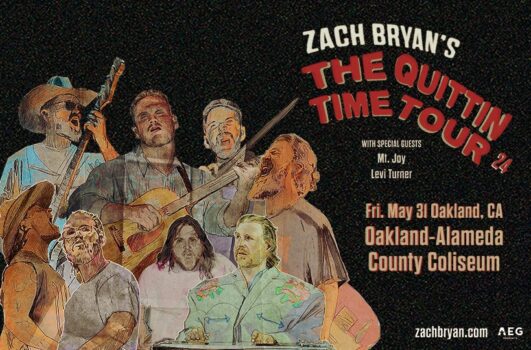The Thoroughly Unexpected Success Of One Of Country’s All-Time Classic Albums
As told by songwriter Paul Overstreet, who wrote 2 of its biggest songs
By kncitom on June 8, 2020

Getting to speak with songwriter Paul Overstreet on this month’s Write You a Song podcast might be a career highlight, just because he is one of the few people who had a direct impact on changing forever the trajectory of country music.
It was back in the 1980s and while artists like Waylon, Willie, Dolly and Johnny were certified musical superstars, the genre itself was pretty insular: it had its fans, but very few people outside of the faithful paid much attention to country music, despite much of the music being watered down with strings and synthesizers in an attempt to garner more mass appeal.
It wasn’t working.
Sure, there were traditionalists who were having radio success: George Strait, Reba, The Judds, Dwight Yoakam. But their careers were modest and they were mostly only popular with those country loyalists.
All of that changed though in 1986, with one album, Storms of Life by Randy Travis. Critically acclaimed from the start, Randy’s debut rocketed him and country music into the consciousness of mainstream America. Simple, perfectly crafted, country songs like “Diggin’ Up Bones” and “On The Other Hand” made traditional country music “cool”…almost overnight. And not only did it help turbo-boost his career and those of the aforementioned artists, the album itself went on to become, as Billboard magazine put it, one of country’s most “profoundly influencing….not just at the time, but for decades to come“.
Which, according to my guest this month on my podcast Write You a Song, was the last thing anybody expected.
Songwriter Paul Overstreet was a co-writer of “Diggin’ Up Bones” and “On The Hand”, as well another hit from Storms, “No Place Like Home”. He would also later write Randy’s iconic “Forever And Ever, Amen”. But, as he explained, even though Randy and producer Kyle Lehning both knew they’d recorded something special, their expectations were modest, at best. “After they finished the record, Kyle said, ‘I don’t think I can produce a better country record than that’. And Randy said, ‘Well, I don’t think I can sing one any better’. And Kyle said, ‘if we can sell maybe 30,000 copies, maybe they’ll let us cut another album‘”.
Overstreet goes on to explain that at that time, most country artists were lucky to sell 30,000 while established stars like Dan Seals might sell 250,000. Keep in mind, this was in an era when pop and rock acts were routinely selling over a million albums.
Seals is mentioned because that’s who Overstreet originally wanted to record “On The Other Hand”. But, he says, Seals’ producer, Lehning, didn’t think it was a good fit. Overstreet also thought maybe he could record the song- he was about to sign his first deal as a singer. But, Lehning told him he had “this new artist, and (he said) ‘I would like to cut it on him’.”
A deeply religious man, Overstreet said as he was contemplating the song’s fate, “A bible verse came to me: ‘it’s better to give than to receive’. So…I said yeah, I need to let it go….go ahead, go for it.”
Storms of Life would go on to sell an unheard of (in country music at the time) 5 million albums!
Overstreet laughed and said it was then he “saw the wisdom in ‘it’s better to give than to receive.”
Click below to hear him tell the whole story, and click here to hear the whole podcast










